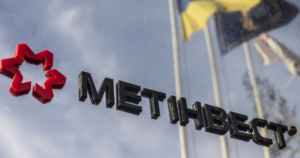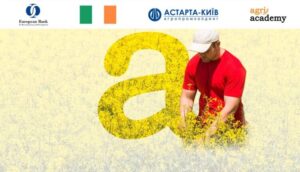
As of July 25, farmers harvested 10.347 million tons of early grains and legumes from an area of 3.236 million hectares, compared to 7.226 million tons from 2.355 million hectares a week earlier, according to the Ministry of Economy, Environment, and Agriculture.
The ministry noted that farmers have already harvested 29% of the area sown with grain and leguminous crops.
According to the Ministry of Economy, 7.088 million tons of wheat have been harvested in Ukraine so far (compared to 4.671 million tons a week earlier) from 2.178 million hectares (1.504 million hectares), barley 2.792 million tons (2.182 million tons) from an area of 838,700 hectares (660,600 hectares), peas – 412,400 tons (362,900 tons) from 190,900 hectares (170,800 hectares). Other cereals and legumes were harvested in the amount of 54.2 thousand tons from an area of 28.5 thousand hectares.
The leaders in grain and legume harvesting are the Odesa region, which harvested 2.5 million tons from 884,500 hectares, Kirovohrad – 1.53 million tons from 368,700 hectares, and Mykolaiv – 1.387 million tons from 577,300 hectares.
Rapeseed has been harvested at 1.04 million tons (614,100 tons) from 535,000 hectares (360,300 hectares).
As reported, as of July 26, 2024, Ukraine had harvested 22.324 million tons of new crops, including 19 million tons of grains and over 3 million tons of oilseeds. At the same time, 14.7 million tons of wheat were harvested from 3.5 thousand hectares, 3.8 million tons of barley from 1.02 thousand hectares, 416,300 tons of peas from 189,800 hectares, 3 million tons of rapeseed from 1,086 hectares, 0.3 thousand tons of soybeans from 0.2 thousand hectares, and 80 tons of millet from 50 hectares.

Metinvest Group, together with the administration and the Defense Council of Kryvyi Rih, has focused its efforts on major projects to renovate the city’s healthcare facilities, according to a press release citing Igor Toniev, CEO of United Mining and Processing Plant (UMPP).
“The largest project currently being implemented by Metinvest is the overhaul of the buildings of the polyclinic and X-ray department of Kryvyi Rih City Hospital No. 3. The company has allocated almost UAH 125 million for this large-scale work. This month, the overhaul of the main inpatient building of City Hospital No. 7 is scheduled to begin. Metinvest is allocating UAH 61.6 million for the development of project documentation, general construction, roofing, and facade work,” said the top manager.
At a meeting between Metinvest Group management and the head of the City Defense Council, Oleksandr Vilkul, it was noted that the project to overhaul the third hospital began in 2023, with funding from both Kryvyi Rih and Metinvest. Equipment for X-rays and fluorography was purchased with funds from the local budget. Also, the second and third floors of the polyclinic will be renovated at the expense of the city. As part of the project to overhaul the polyclinic of the third hospital, the group undertook the construction work and modernization of the first floor, the X-ray department, and the construction of a shelter for 350 people.
Vilkul stated that the city is actively implementing a large number of projects in the field of medicine. In particular, there is one large-scale project that is starting – the reconstruction of Hospital No. 7, which is the main cluster institution for the northern part of the district, Zhovti Vody, and the surrounding villages. The project involves the renovation of the main inpatient department. The project is being financed from three sources: the city budget, a grant won in a competition organized by the Ministry of Infrastructure (this will be co-financed by the European Investment Bank through the Ministry of Infrastructure), and funds from Metinvest.
“By joining forces, we are implementing a medical project that is important for the community,” Vilkul stated.
Metinvest is a vertically integrated group of mining and metallurgical companies. Its enterprises are located in Ukraine, in the Donetsk, Luhansk, Zaporizhia, and Dnipropetrovsk regions, as well as in the European Union, the United Kingdom, and the United States. The main shareholders of the holding company are SCM Group (71.24%) and Smart Holding (23.76%). Metinvest Holding LLC is the managing company of the Metinvest Group.

Since 2021, 8,644 agricultural companies have been registered in Ukraine, while 3,416 companies have been closed, according to the Opendatabot service.
According to the resource, agricultural companies were most actively registered in 2021, when 2,678 companies appeared. With the start of the full-scale invasion, the number of registrations dropped to 1,558. However, starting in 2023, the agricultural sector revived: 1,697 new companies appeared in a year. Between January and July 2025, 869 new agricultural enterprises were registered.
Analyzing data on the closure of agricultural enterprises, analysts noted that the largest number of closures occurred in 2021 (1,070 companies) and in 2024 (685). This year, 536 agricultural companies decided to cease operations.
The largest number of new agricultural companies was recorded in the Odesa region — 612. Next are Kyiv (600), Lviv region (597), Vinnytsia (591), and Dnipropetrovsk (535). The fewest were in the frontline regions of Luhansk (40), Donetsk (101), and Zaporizhzhia (147). However, agribusinesses are not very active in Chernivtsi (120) and Zakarpattia (171) regions either.
The largest number of agricultural companies closed in the Odesa region — 606. There were also many closures in the Dnipropetrovsk (225), Khmelnytskyi (201), Kyiv (199), and Mykolaiv (191) regions. The fewest closures were in Luhansk (21), Donetsk (49), Ivano-Frankivsk (49), and Kyiv (55).
Analysts noted that 1,738 agricultural companies relocated to other regions during this period. Of these, 346 agribusinesses moved to western regions of Ukraine over the past five years. Almost half of the relocators who decided to move west chose Lviv region as their new region for doing business — 166 companies. Rivne (54 companies), Volyn (39), Khmelnytskyi (30), and Zakarpattia (19) regions are also popular among businesses changing their registration.
In addition, a number of agricultural companies that have opened during this time are steadily increasing their wealth. The top five newcomers actively expanding their operations include Farmzaat Ukraine, whose revenue grew 3.3 times in 2024 to UAH 770 million; Niva-Plus, which earned 1.5 times more than in 2023, at UAH 530 million; Agroprotekhnika – 2.7 times, to UAH 392 million, Krasnopavlivsky KHP – 1.3 times, to UAH 308 million, and Agrofirma Malynivska – 2.8 times, to UAH 299 million.

In response to ticket shortages, Ukrzaliznytsia is rolling out a trial version of the “Dія.Підпис” verification system, which already works for international flights, for five popular domestic trains.
“We continue to use all means to reduce the number of possible abuses when purchasing train tickets. Therefore, from August 1, in order to buy or return tickets for certain domestic trains, passengers must verify their identity through ”Dія.Підпис,” the company said in a statement.
According to the statement, during the first stage of implementation, verification will be required for the following trains: No. 105/106 Odesa-Kyiv; No. 91/92 Lviv-Kyiv; No. 29/30 Kyiv-Uzhhorod; No. 12 Lviv-Odesa and No. 27/28 Kyiv-Chop.
Tickets for these flights will not be available at ticket offices.
The new rules will not apply to flights with special ticket reserves for military personnel.
Ukrzaliznytsia also noted that it is continuing to work on introducing authorization in the app via BankID.

JSC Dniproazot (Kamensk, Dnipropetrovsk region) reported a loss of UAH 1.329 billion for 2024 and does not plan to consider profit distribution or pay dividends.
According to a publication in the information disclosure system of the National Securities and Stock Market Commission (NSSMC), at the annual general meeting, which will be held remotely on August 28, shareholders will be asked to approve the supervisory board’s report for 2024 without comments or additional measures, to recognize the supervisory board’s activities as satisfactory and to approve its work as consistent with its powers, goals, objectives, and areas of activity.
In addition, shareholders are invited to take into account the conclusions of the audit report of Standard-Audit LLC on the audit of the financial statements of JSC Dniproazot for 2024, but not to approve any specific measures in this regard. Instead, they want to oblige the Supervisory Board not to renew the contract with this audit company and to find another auditor.
The General Meeting will also amend the provisions on the remuneration of members of the company’s management bodies, in particular the Supervisory Board and the Management Board.
The shareholders will hear the management board’s report on the results of the reduction of the equity capital of JSC Dniproazot and instruct the chairman of the management board to file a petition with the commercial court to initiate preventive restructuring proceedings and bankruptcy proceedings against JSC Dniproazot.
At the end of the general meeting, the shareholders will consider the issue of liquidating JSC Dniproazot in accordance with and in compliance with the requirements of Part 2 of Article 16 of the Law of Ukraine “On Joint Stock Companies.”
Dniproazot JSC is a chemical company in Ukraine, a major producer of ammonia and nitrogen fertilizers, specializing in the production of ammonia, urea, caustic soda, chlorine, and hydrochloric acid. It was founded in 1996 and is one of the five largest chemical companies in the country.
Currently, it is the only company in Ukraine that produces liquid chlorine, which is used for sterilizing drinking water and treating wastewater. Over 80% of its products are supplied to countries in Europe, Asia, and Latin America.
According to Opendatabot, in 2024, Dniproazot reduced its revenue by 7.6 times to UAH 184.05 million, its debt obligations by 4.2% to UAH 1.3 billion, and increased its net loss by 5.4 times to UAH 1.349 billion. Its assets are estimated at UAH 1.553 billion, compared to UAH 2.904 billion a year ago. The number of employees decreased by 440 to 2,636.
The beneficiaries of the company are Dimsy Equities Ltd (23%), Celastrina Trading Co. Limited (7.38%), and Dzer
Dniproazot, loss

Winter rapeseed sowing is about to begin! Get ready for the season with a new certified free online course from AgriAcademy and Astarta-Kyiv agricultural holding – “Winter rapeseed. Cultivation Technology.” This professionally structured online course, developed with the participation of leading experts from the Astarta-Kyiv agro-industrial holding, provides systematic knowledge for effective planning and management of this crop.
Who will find it useful:
What the course includes:
Register now: “Winter rapeseed. Growing technology”
The course is designed as an interactive presentation in Ukrainian. Upon completion of the course and successful passing of the test, participants will receive a certificate.
Course authors:
Volodymyr Filimonov – Chief Plant Protection Agronomist at Astarta-Kyiv, scientist, practitioner, graduate of Uman Agricultural University and postgraduate student at the Institute of Agriculture of the National Academy of Agrarian Sciences of Ukraine.
Methodological team: Olga Veiler (interactive content), Svitlana Semenyuk (methodologist).
Organizational information:
Like all AgriAcademy educational products, the new course is free of charge. The materials are available for study online at any time and include a certificate upon successful completion of the course.
Professional development is an investment with a predictable return, and AgriAcademy offers training that works for profit.
Registration is now open: “Winter rapeseed. Growing technology”
Don’t delay — a high yield starts with the decisions you make today!
As a reminder, in 2024, the European Bank for Reconstruction and Development (EBRD) and the Astarta-Kyiv agricultural holding signed a partnership agreement on the development of distance learning for Ukrainian farmers. The partnership will see the creation of 25 online courses on the cultivation, storage, and processing of field crops.
AgriAcademy is a free online training platform for agricultural workers and students of agricultural educational institutions, launched by the EBRD in December 2022 as part of its food security support program in Ukraine. Its goal is to strengthen the competitiveness and sustainable development of agriculture, which has suffered significant losses due to the war.
Today, the platform offers 25 online courses – more than 300 hours of practical training in agronomy, management, technology, processing, storage, and more. Each course includes knowledge testing and certification of participants.
The platform is created and managed (including course development, training tours, etc.) with the support and funding of the EBRD, as well as:
Astarta-Kyiv is a vertically integrated agro-industrial holding company in Ukraine, a publicly traded European company that conducts socially responsible business and produces food products for global markets. The company was founded in 1993 by Viktor Ivanchyk, who remains its majority owner and CEO. Since 2006, Astarta’s shares have been listed on the Warsaw Stock Exchange.
Main activities:
In the field of digital innovation, Astarta has created its own IT company, AgriChain, which develops comprehensive digital solutions for agribusiness management.
Astarta’s business philosophy is based on the principles of sustainable development, partnership values, and responsibility.
The company’s team is creating an ecosystem of responsible partnership that brings together the resources, capabilities, and efforts of Ukrainian businesses and proactive members of society, as well as international partners, including foreign governments, embassies, and foreign companies. The goal is to promote the psychosocial and economic resilience and self-awareness of Ukrainians.